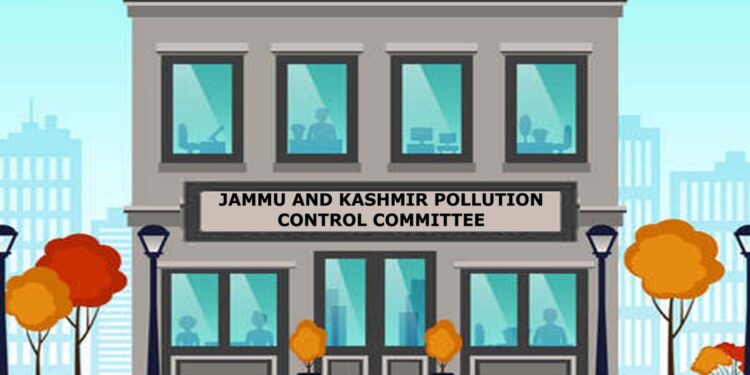“By going beyond its mandate — especially in matters like land facilitation and EIA clearance — JKPCC is not only overstepping but also compromising the credibility of regulatory governance in the region”
K KOUSHAL
In a startling example of institutional leniency towards industrial bigwigs, the Jammu and Kashmir Pollution Control Committee (JKPCC) appears to have buckled under pressure from wealthy industrialists, which is evident from the alleged tailoring of pollution norms to patronize Industrial Giants.
According to the sources and available documents, the saga began on August 2, 2023, when the JKPCC granted Consent to Establish (CTE) for a new manufacturing unit. The project involved production of 70,488 metric tonnes per year of aluminum foils, 46,992 metric tonnes per year of aluminum containers, and 2,520 metric tonnes per year of scrap/dross. Despite the large production volumes, the project was categorized under the Orange category, typically reserved for moderate pollution potential.
However, what followed has raised eyebrows among environmental activists and policy watchers.
“When the same unit applied for expansion the following year, the figures told a different story. Instead of individual production capacities for each item, the application clubbed all products under a single umbrella figure — conveniently bringing the total down to 60,000 metric tonnes per year,” said sources, adding that this move is being seen as a clever manipulation to dodge stricter environmental scrutiny.
Despite these discrepancies, a CTE (schedule 3) was generated online — but left unsigned after The Typewriter raised questions over the legitimacy of the manipulated figures and undue favour to particular industrialist, namely M/s Jupiter Aluminum Industries.
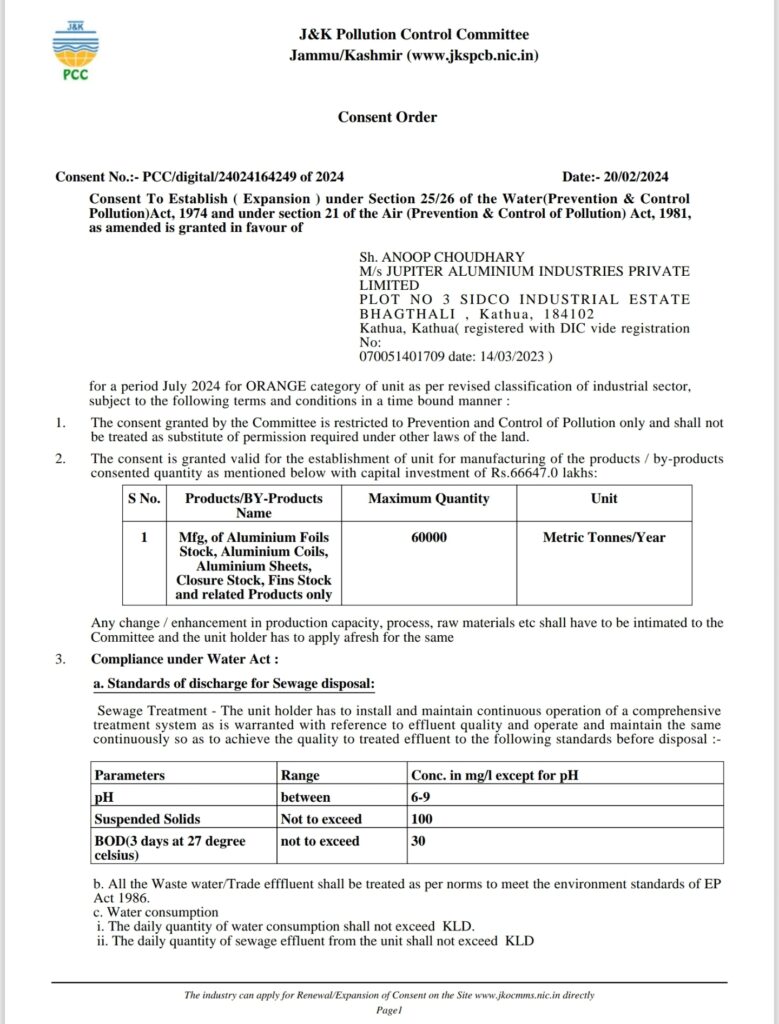
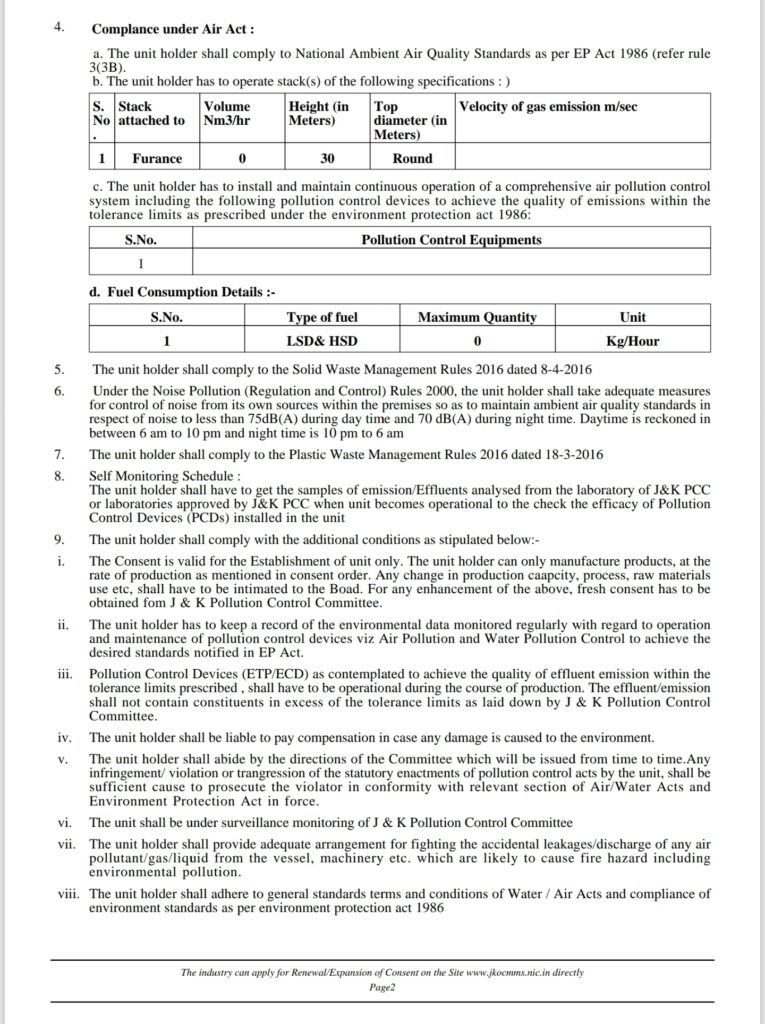
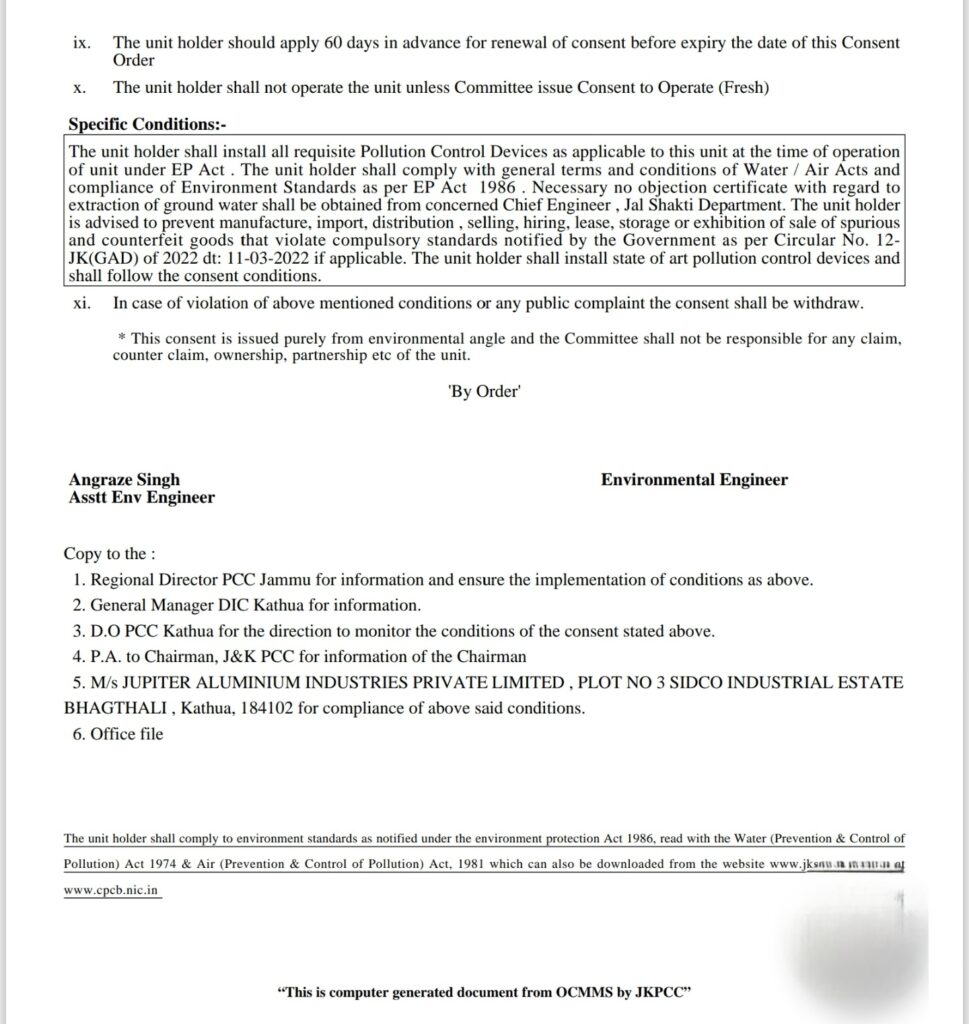
“Then came a surprising twist, on January 27, 2025, JKPCC issued a fresh CTE that not only reversed the earlier downscaling but approved an increased capacity of 91,000 metric tonnes per year. The project was finally placed under the Red category, denoting a high pollution potential — yet no stringent action followed,” said sources, adding “What’s more troubling is the inclusion of land securing and environmental clearance facilitation in the latest order.”
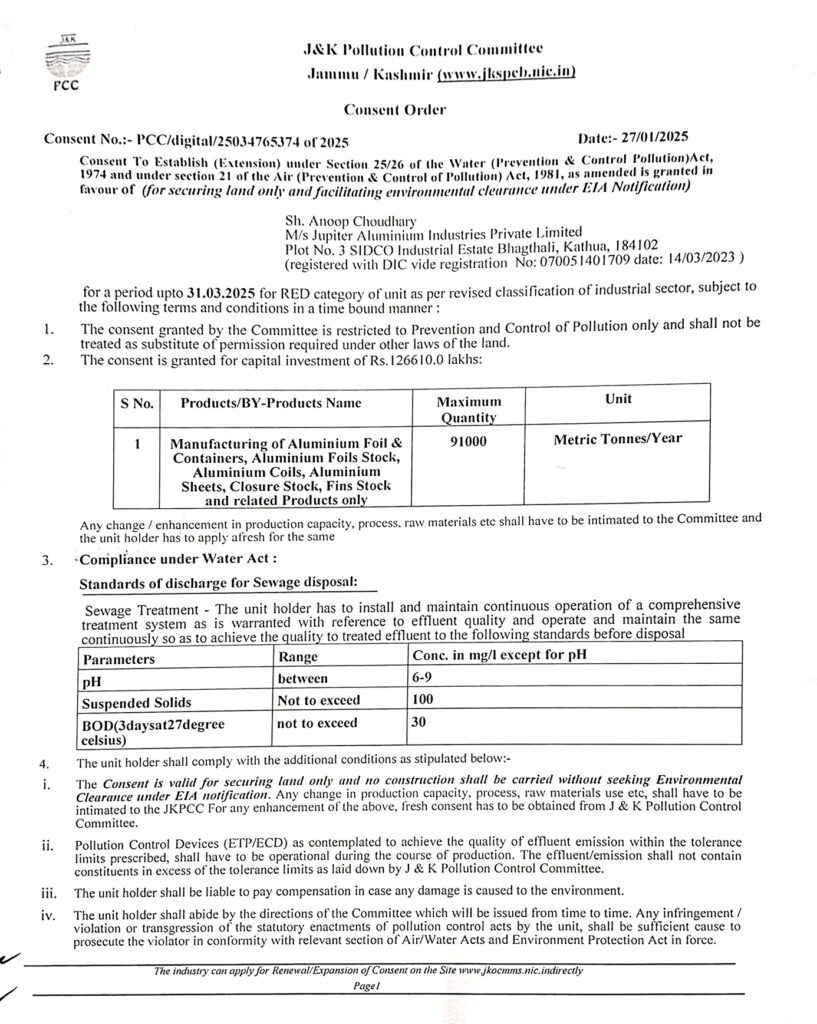
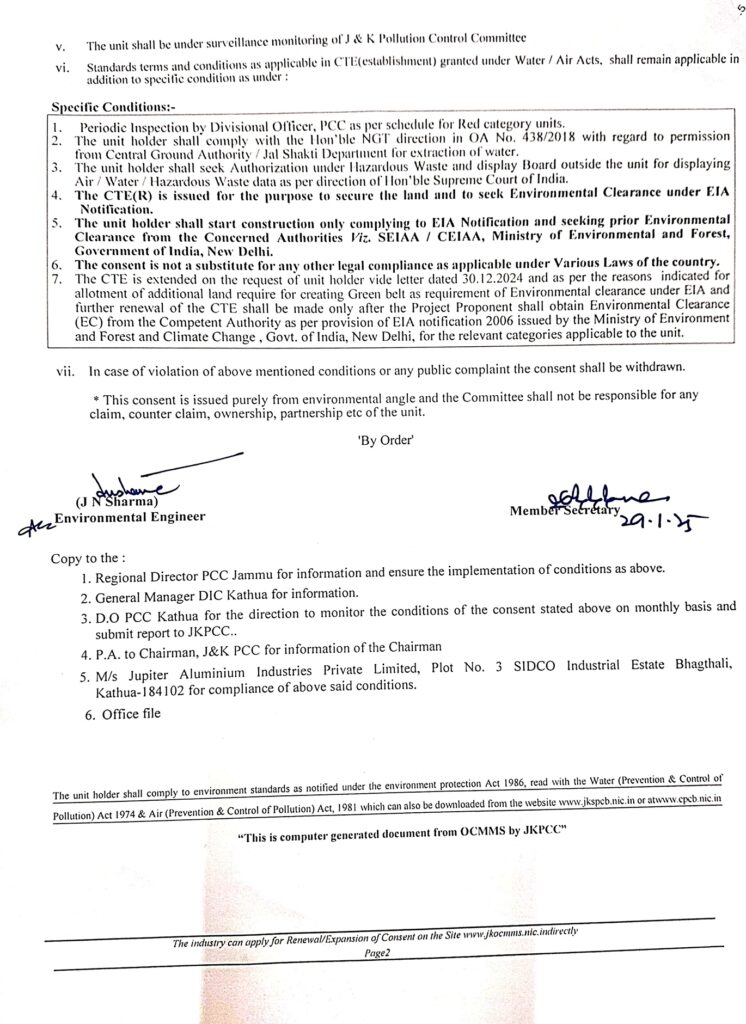
If sources are to be believed, JKPCC’s involvement in these processes falls outside its official mandate, especially under the Environmental Impact Assessment (EIA) Notification norms.
Talking to The Typewriter, a senior legal expert has slammed the JKPCC’s actions as a ‘gross violation of regulatory ethics’.
“This is not just a case of regulatory oversight — it appears to be a calculated dilution of environmental norms to serve corporate interests,” expert said, adding “The JKPCC’s role is to safeguard the environment, not to facilitate industrial expansion at the cost of ecological health.”
He termed the JKPCC’s conduct as “borderline illegal.” “By going beyond its mandate — especially in matters like land facilitation and EIA clearance — JKPCC is not only overstepping but also compromising the credibility of regulatory governance in the region,” he added and demanded an independent investigation into the approvals granted to M/s Jupiter Aluminum Industries, suspension of officials involved, pending inquiry and a comprehensive audit of all CTEs issued by JKPCC in the past five years,
“The long-term impact of such regulatory negligence can be disastrous,” he warned and added “If we don’t act now, we risk irreversible damage.”
When approached by The Typewriter, the Chairman of JKPCC was evasive. He claimed the committee “follows basic principles” in its decision-making process.
On being pressed about the seemingly lenient approach towards affluent industrialists, he responded that the PCC can conduct “independent verification” if needed.
However, sources argued that the damage may already be done. The shifting goalposts, lack of transparency, and potential bending of rules raise serious questions about the role of regulatory bodies in protecting public interest versus appeasing industrial giants.

